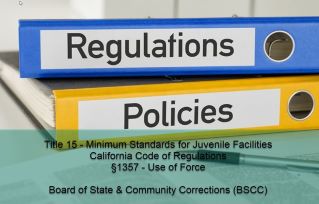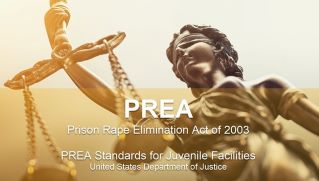About ACPD Policy & Standards Compliance Unit
The ACPD Policy & Standards Compliance Unit oversees and facilitates the development and maintenance of Department-wide policies, procedures, and protocols in response to new laws and legislation, local mandates, agreements with labor unions, and operational necessity. Policy Unit staff ensure that ACPD’s policies, procedures, and protocols adhere to uniform standards, incorporate evidence-based practices, and comply with all applicable laws and regulations.
The Alameda County Probation Department permits grievances lodged by anyone regardless of immigration status and to assess whether such grievances may lead to any negative immigration consequences.
The Alameda County Probation Department allows for immigrants and refugees regardless of status to lodge grievances when no negative immigration consequences would result.
The Alameda County Probation Department prohibits discrimination on the basis of immigration status, citizenship status, or refugee status.
Use of Force (Field Services)
ACPD’s Use of Force policy was recently updated to incorporate new mandates, best practices, and updated departmental standards for the use of force, as outlined in California Penal Code Section 835a, and Government Code Section 7286. These mandates require officers to utilize de-escalation techniques and other alternatives to use of force, report the use of force to the California Department of Justice (DOJ), and intercede when another officer is using unreasonable or excessive force. The mandates also require law enforcement agencies to maintain a use of force policy and make it publicly available on the agency’s website, as well as provide specific guidelines for training, the application of deadly force, and evaluating and reviewing all use of force incidents.
Use of Force (Juvenile Facilities)
Maintaining the safety and security of staff and youth at Juvenile Hall is among ACPD’s highest priorities. While de-escalation techniques and alternatives to force are the preferred strategies for ACPD staff to utilize when faced with resolving a conflict, the use of force may be necessary in situations where the potential for serious harm is imminent and no alternatives are available. This policy provides guidelines for the use of force, de-escalation techniques, and other alternatives to force; an officer’s obligation to report the use of force and intercede when another officer is using unreasonable or excessive force, training standards, and factors for evaluating and reviewing use of force incidents. This policy was developed in cooperation with the Medical and Behavioral Health Directors of ACPD’s juvenile facilities.
Prison Rape Elimination Act (PREA)
The ACPD is committed to creating and maintaining a safe and humane environment for the youth housed at the Juvenile Facilities. To create and sustain such an environment, the ACPD maintains a zero-tolerance policy regarding sexual misconduct involving youth. This policy, in accordance with the Federal Prison Rape Elimination Act of 2003 (PREA), establishes standards and expectations regarding the ACPD’s responsibility to prevent, detect, and respond to sexual misconduct at the Juvenile Hall and Camp Wilmont Sweeney facilities.




